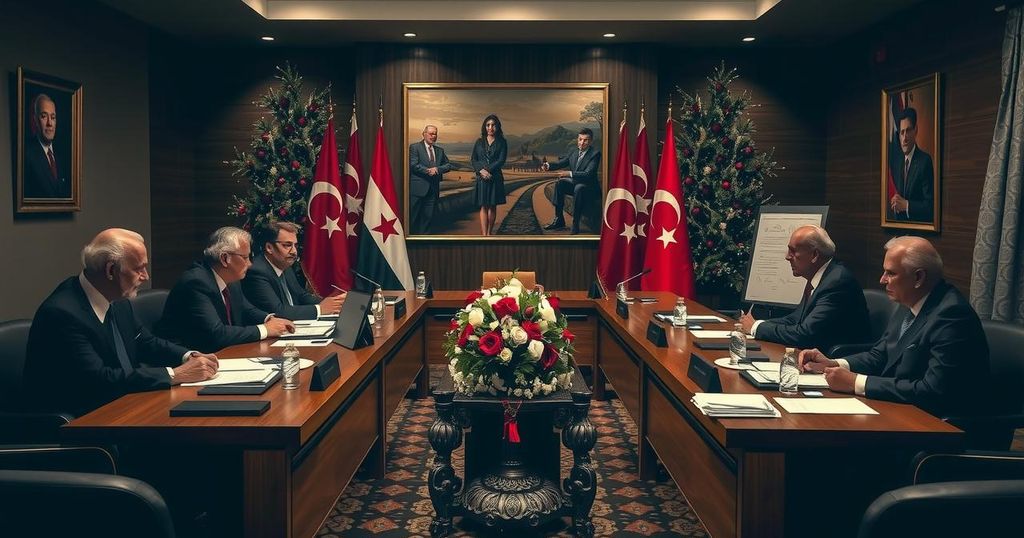Iran’s Diplomacy in Support of Syria Amidst Insurgent Advances

Iran’s Foreign Minister will visit Syria to express support for Bashar al-Assad’s regime amidst recent territorial losses to Islamist insurgents, particularly in Aleppo. The Assad government, reliant on foreign backing, aims to repel the insurgency with help from allies while facing increasing airstrike activity from Israel.
Iran’s Foreign Minister Abbas Araghchi is set to visit Damascus as a demonstration of unwavering support for the beleaguered Syrian regime amidst escalating challenges to its authority. The Syrian government has faced a significant advance by Islamist insurgents from Hayat Tahrir al-Sham (HTS), who have captured territory, including the pivotal city of Aleppo. Araghchi stated his intention to reinforce the commitment of Tehran to President Bashar al-Assad, whose government is attempting to mount a counter-offensive after recent territorial losses.
Assad has remained relatively out of the public eye during this crisis, only reappearing to communicate with regional allies, including the leaders of Iraq and the United Arab Emirates, assuring them of his government’s resolve to reclaim lost ground with the assistance of foreign allies. The Syrian regime’s stability has historically hinged on foreign backing, particularly from Russia and Iran, particularly evident during the 2016 offensive to retake Aleppo.
The Iranian Revolutionary Guards have played an instrumental role on the ground, even as Israel intensifies its airstrikes on Iranian positions in Syria. The insurgency’s recent push has prompted concerns among Assad’s supporters, with calls between Araghchi and Russian Foreign Minister Sergei Lavrov expressing alarm over the heightened violence.
The U.S. National Security Council has remarked on the developments, asserting that it is monitoring the situation closely but denying involvement in the insurgent advances, instead attributing them to the Assad regime’s dependency on foreign aid amidst its fraying control over the northwestern region.
Meanwhile, Turkish-backed rebel factions and Kurdish groups have rapidly seized areas vacated by Syrian forces, indicating a shifting control dynamic within the region. Syrian and Russian airstrikes have intensified in response to the insurgent threat, with reports of casualties in Idlib from these strikes. Amid these developments, the Syrian government has issued declarations of reinforcement and counter-offensive strategies to regain its territorial integrity.
The recent conflicts in Syria illustrate the ongoing instability that has plagued the region since the onset of the civil war in 2011. The uprising against President Bashar al-Assad evolved into a protracted conflict that has resulted in significant territorial losses for the regime. The capture of Aleppo by insurgent forces marks a critical juncture for Assad’s government, which has increasingly relied on foreign support, particularly from Iran and Russia, to maintain control. The dynamics of international involvement, with increasing tensions between regional powers and the disruption caused by the Islamic insurgency, underscore the complexities of the current situation.
In conclusion, Iran’s diplomatic support for Syria reflects the critical juncture at which the Assad regime finds itself amidst a renewed insurgency. The loss of strategic territories such as Aleppo has elicited strong responses from both regional allies and the Syrian government. As the situation evolves, the positions and strategies of external powers, particularly Iran and Russia, will significantly influence the trajectory of the conflict, which remains volatile and precarious.
Original Source: www.theguardian.com








